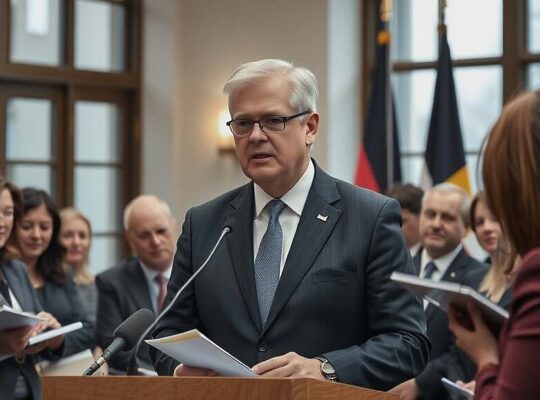Disappointment has been voiced within German state leadership regarding a recent move by Rhineland-Palatinate to restrict access to the civil service for members of the Alternative for Germany (AfD) party. Ulrich Mäurer, chairman of the Interior Ministers Conference, expressed his concern in an interview with the Frankfurter Allgemeine Zeitung, highlighting the setback to previously agreed-upon collaborative efforts.
The Interior Ministers Conference had previously dedicated considerable time to formulating a unified approach between the federal government and individual states concerning the handling of AfD members within the civil service. This followed the German domestic intelligence agency’s assessment of the party as “reliably right-wing extremist”. The agreed-upon strategy involved the establishment of a joint federal-state working group to develop specific guidelines.
Mäurer lamented that this consensus, reached only two weeks prior, has already been undermined, following similar actions by Bavaria. He reiterated the importance of a coordinated, collective approach to navigate the complex legal and political landscape.
In Bavaria, where the AfD is also listed as a group under observation for extremist tendencies, officials adopted a more cautious stance. A spokesperson for the state’s Finance Ministry, led by the Christian Social Union (CSU), emphasized that mere membership in a listed organization does not automatically disqualify a candidate and does not invariably raise sufficient doubts about their allegiance to the constitution to warrant rejection.












